‘The Pitt’ Gives Us a First-Hand Look at One of the Silent Killers in a Hospital
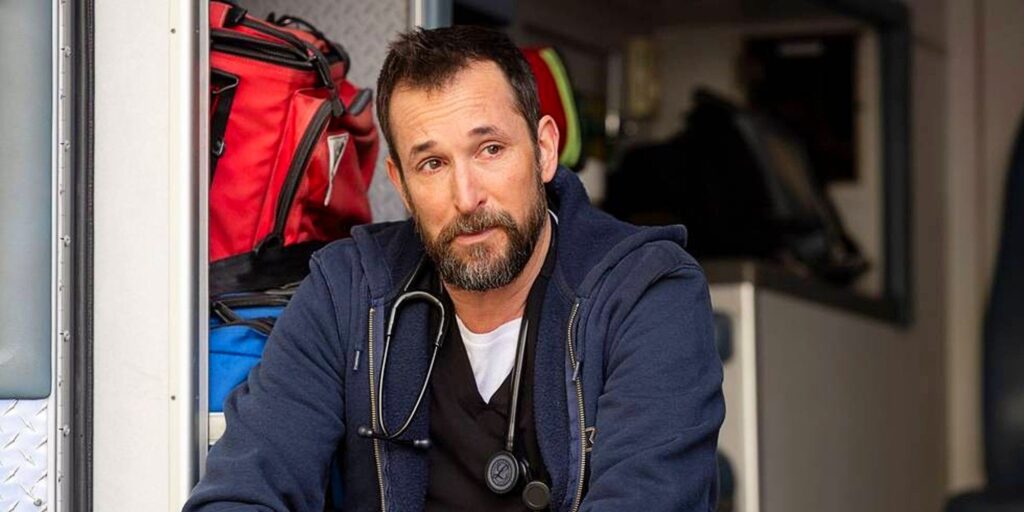
There are so many tragic incidents that occur in a hospital emergency room every single day. When people find themselves in an ER, it’s often one of the worst days of their lives. Individuals are going through their own catastrophic health events, or they’re there with a loved one who is. Amidst this trauma, it can be hard to remember that the staff that make up that hospital are every bit as affected by what they see as we are. In fact, many doctors and nurses experience mental health issues because of what they witness on the job, and some even resort to being suicidal. This silent killer is an issue that mostly goes unexplored in our society — that is, until Max’s hit series, The Pitt, covered it in detail in its first season.
‘The Pitt’ Portrays Several Different Types of Hospital Trauma
The risks of developing mental health conditions, such as depression, anxiety, and Post-Traumatic Stress Disorder (PTSD), increase greatly when hospital staff have to cope with a mass casualty event. Starting in Episode 12, The Pitt staff, led by Dr. Michael “Robby” Robinavitch (Noah Wyle), works to save dozens and dozens of lives after a mass shooting takes place at a local music festival. Triage is done outside, where doctors must do the absolutely heartbreaking task of sorting the patients into categories (including deciphering whether some patients are too far gone to save). Inside the ER, doctors and nurses rush to treat as many patients as quickly as they can. These patients range in demographics and the severity of their injuries, but each of them demands the attention and focus of the skilled staff. Blood has to be continually mopped up off the floor, and frantic shouts ring out as doctors yell for the tools they need to save the lives of whoever they’re treating. It is no surprise that their mental health would suffer after witnessing these horrific things. The season finale ends with the staff trying to decompress with a few beers in the park, but it’s easy to tell that they’ll each be forever changed by the trauma they’ve experienced that day.
But The Pitt hasn’t just detailed the harmful effects of a one-time event like a mass shooting. From the very first episode, the series has thoughtfully portrayed how long-term stress can affect medical staff. For example, COVID-19 wreaked havoc on the mental health of every essential worker around the world, who was tasked with saving lives under unthinkable circumstances. Robby’s mental health has suffered in a major way since the death of his mentor during the pandemic. All season we’ve seen him experience symptoms of PTSD, including flashbacks, dissociation, and panic attacks (as seen in Episode 13), and it’s clear that he’s suffering. Although COVID-19 was a more sustained event, it was no less traumatizing for the medical staff who were face-to-face with death every day, and we see this through Robby’s continued emotional struggles throughout his shift.
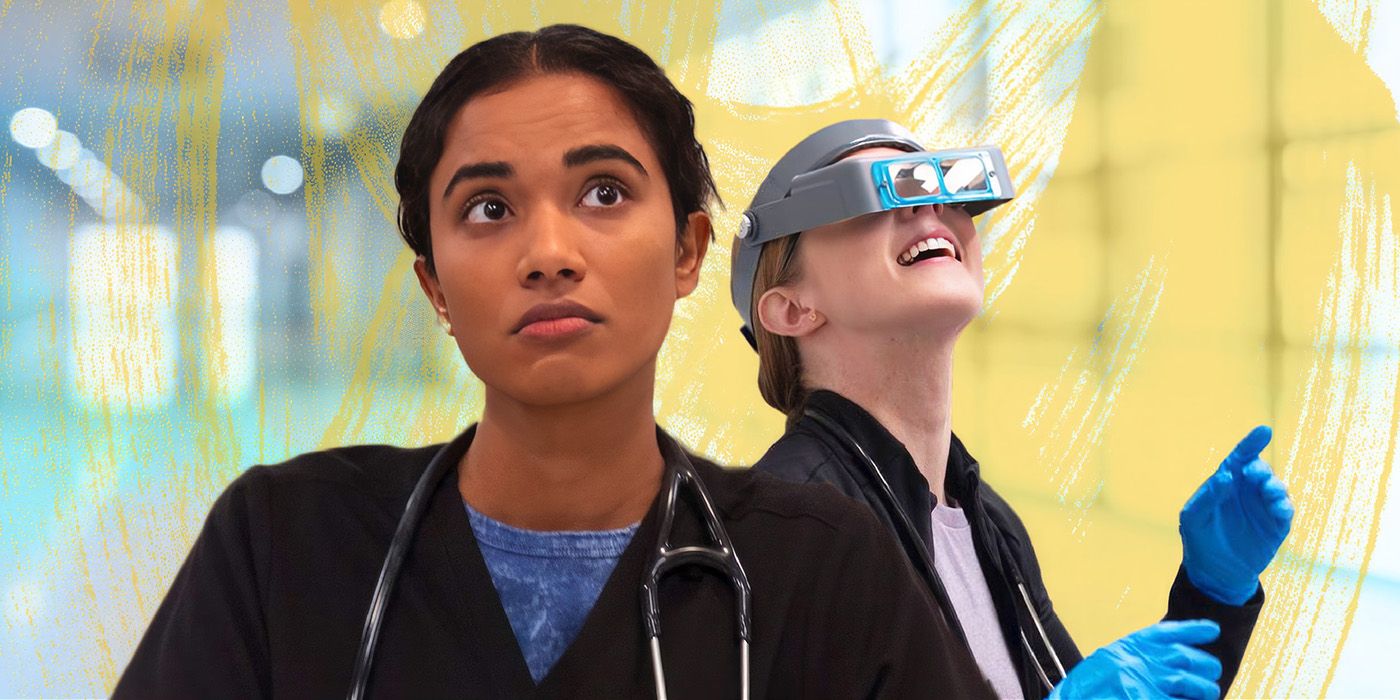
Related
After How Real ‘The Pitt’ Feels, I’ll Never Look at Medical TV Shows the Same Way Again
I can’t go back to the ghost characters and basic romances.
Medical Professionals Have an Increased Risk of Mental Health Conditions, as Seen on ‘The Pitt’
Because of the high-pressure, high-stakes career they’re in, doctors and nurses have an increased risk of developing some mental health conditions. One study found that the depression rate among medical residents was 29 percent (while the rate among non-doctors is just 8 percent). During the pandemic, 87 percent of ER doctors reported feeling more stressed, which can lead to more symptoms of anxiety and depression. In fact, at the end of 2021, the American Medical Association (AMA) reported that about 63 percent of healthcare professionals indicated they had symptoms of burnout and depression, and almost 30 percent of medical students and residents had depression. These physicians, who have to be on their A game at all times, can become distracted or make mistakes because they’re in so much distress, which can result in worse medical outcomes for the patient. Even if these professionals are able to compartmentalize and continue to be effective at their jobs (such as the doctors in The Pitt), their personal lives and emotional well-being can still suffer.
The biggest cause for concern is that many of these medical professionals don’t feel comfortable seeking help for their symptoms. Some worry that they could lose their license, won’t get promoted, or that they’ll appear weak to their colleagues. These symptoms, plus a lack of support, equal the silent killer in hospitals: a suicide crisis that is currently sweeping the medical field in the US. Every year, around 300 to 400 physicians kill themselves, and “more than half of doctors in the country know a colleague who has considered, attempted, or died by suicide.” In a more worrying statistic, at least 10 percent of medical students and residents say they have suicidal thoughts. So, if the suicide rate for doctors is nearly twice that of the general population, why are we not talking about it more as a society? Well, there is still a mental health and suicide stigma in our culture that prevents us from addressing these problems head-on.
‘The Pitt’ Highlights How These Real-Life Issues Affect Hospital Staff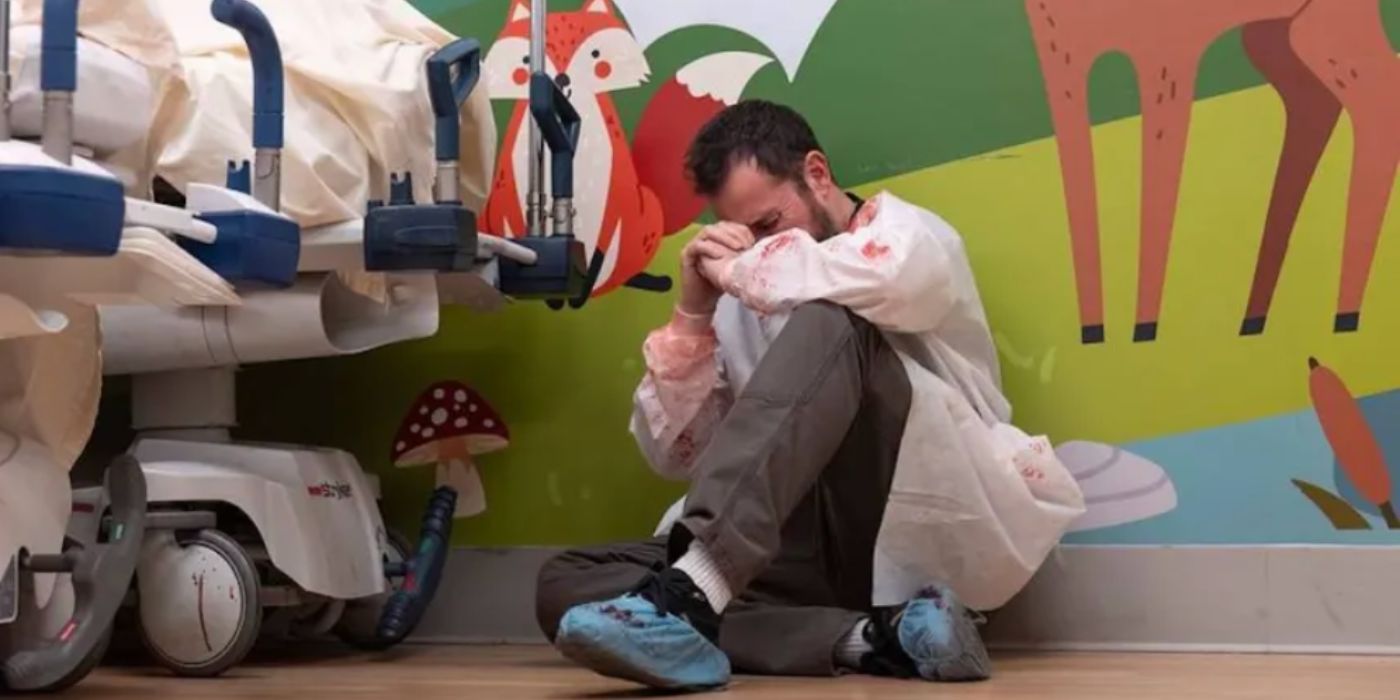
The Pitt has become well-known for its gritty and realistic look at how an emergency room functions. But by depicting how these doctors struggle with their mental health and suicidal thoughts, the series is also ensuring that a larger conversation is being sparked about these issues. In both Episodes 1 and 15, Robby and his night-shift counterpart, Dr. Jack Abbot (Shawn Hatosy), climb onto the ledge of the hospital roof and question why they keep coming back to work (and why they keep going at all). It is evident that they have both experienced a great deal of trauma in their careers (and in their own personal lives as well), and they continue to fight their demons every day. By giving a voice to these experiences through these characters, the series is helping to raise awareness of how dangerous and gravely serious these types of mental health issues can be in real life.
We’ve been taught to see our doctors as heroes, but this mindset leads us to forget that they’re merely humans as well. How is anyone supposed to cope with seeing such graphic and tragic situations every day without getting help for it? In a heartbreaking scene, we see Dr. Mohan (Supriya Ganesh) break down after finally coming down from the adrenaline of the mass shooting. It’s just another indication that the trauma experienced by these doctors will continue far beyond just this day. Suicide rates will only continue to climb if we don’t do more to address the pain these caregivers are experiencing on a daily basis. In its first season, The Pitt has already helped to shine a light on the realities of what working in an emergency room will do to a person’s psyche, but it also helps viewers understand the compassion that is needed to help eliminate this silent killer for good.
Season 1 of The Pitt is available to stream on Max in the U.S.
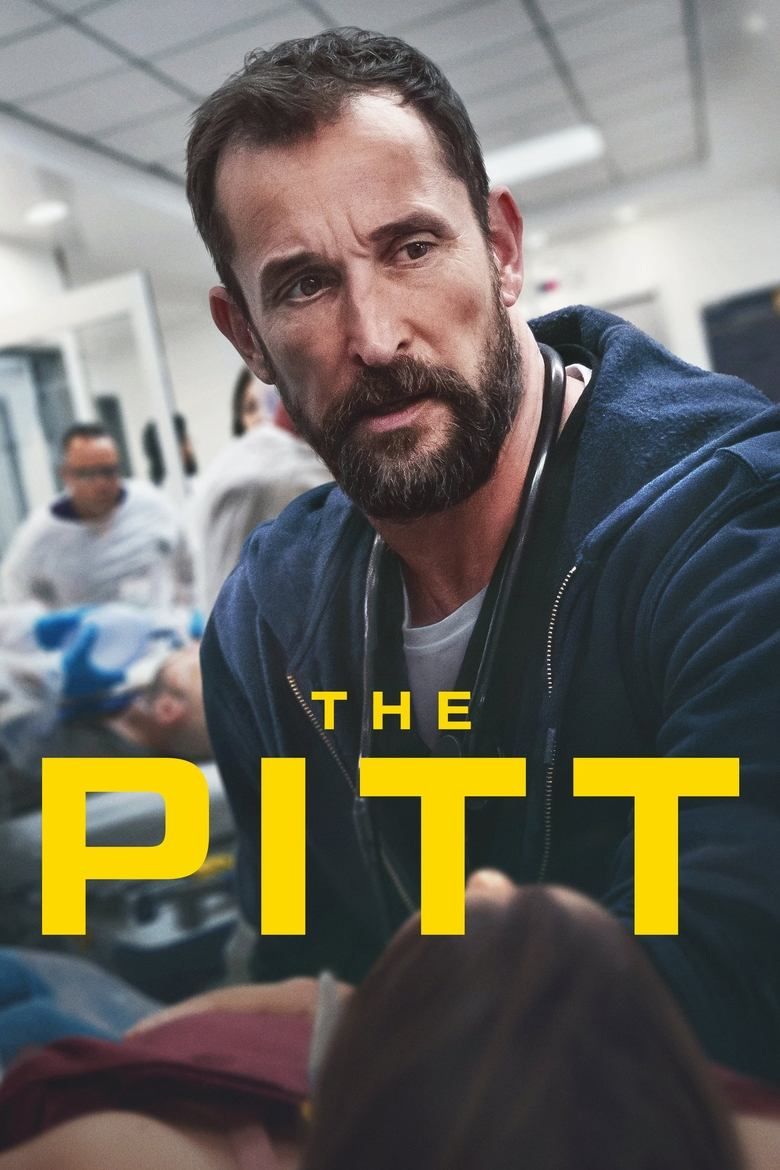
- Release Date
-
January 9, 2025
- Network
-
Max
- Showrunner
-
R. Scott Gemmill
- Directors
-
Amanda Marsalis
- Writers
-
Joe Sachs, Cynthia Adarkwa
-
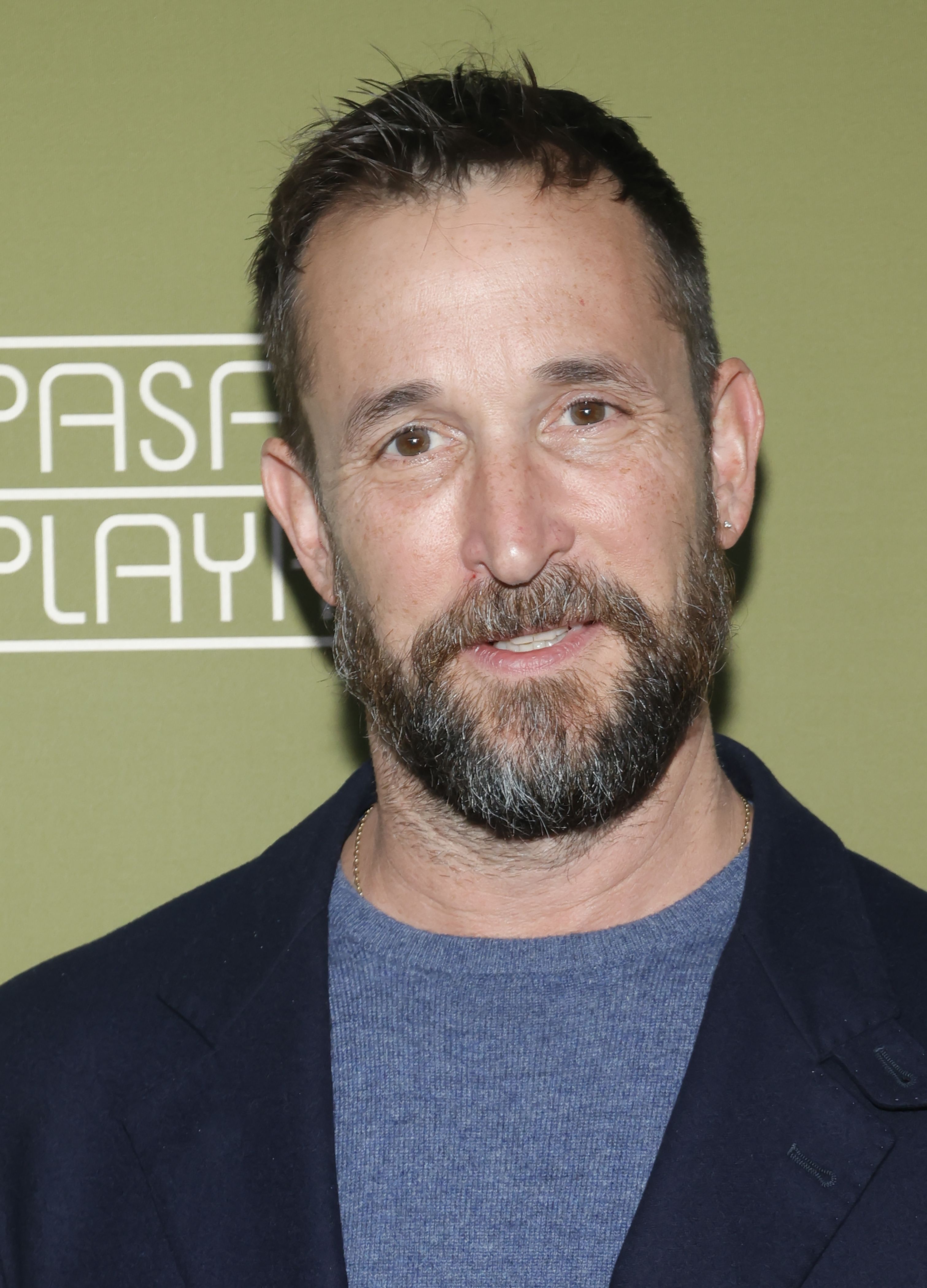
Noah Wyle
Dr. Michael ‘Robby’ Robinavitch
-

Tracy Ifeachor
Uncredited





